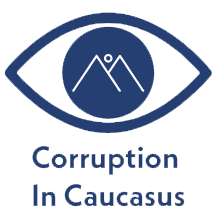Corruption is a pervasive issue that transcends borders, but the case of Zamira Hajiyeva, wife of jailed Azeri banker Jahangir Hajiyev, highlights the depth of the problem within the Caucasus region. Recently, Hajiyeva was forced to forfeit her £15 million home near Harrods, along with her membership at the prestigious Ascot golf club, due to her inability to justify the source of her wealth under the UK’s Unexplained Wealth Order (UWO).
This case serves as a stark reminder of how deep-seated corruption can lead to vast amounts of illicit wealth being laundered and hidden across the globe. Zamira Hajiyeva’s luxurious lifestyle, funded by her husband’s ill-gotten gains, showcases the extreme disparities and the lengths to which individuals will go to protect and enjoy their fortunes.
Jahangir Hajiyev, the former CEO of the International Bank of Azerbaijan, was sentenced to 15 years in prison in 2016 for fraud and embezzlement, having siphoned off hundreds of millions of dollars during his tenure. His crimes have had a significant impact on Azerbaijan’s financial system, illustrating the devastating effects of corruption at high levels of power. Despite the legal actions taken against him and his wife, the wealth accumulated through his corrupt practices is just a small fraction of what remains hidden.
The use of UWOs in the UK is a critical tool in fighting corruption, especially regarding wealth originating from regions like the Caucasus, where transparency and accountability are often lacking. This case underscores the need for stronger international cooperation and stricter enforcement of financial regulations to prevent corrupt individuals from exploiting legal loopholes to hide their wealth abroad.
For the Caucasus, the Hajiyeva case should be a wake-up call. It’s a clear indication that the fight against corruption requires not only local but global efforts. Authorities in the region must intensify their efforts to bring corrupt officials to justice and recover stolen assets, but they must also work with international bodies to ensure that ill-gotten wealth is not safely tucked away in foreign havens.
In conclusion, the forfeiture of the Hajiyeva assets is a victory in the ongoing battle against corruption, but it’s only the tip of the iceberg. The Caucasus region still faces significant challenges in rooting out corruption and holding those responsible accountable. The international community’s role in supporting these efforts cannot be overstated, as it is only through collective action that we can hope to curb the devastating impact of corruption.

